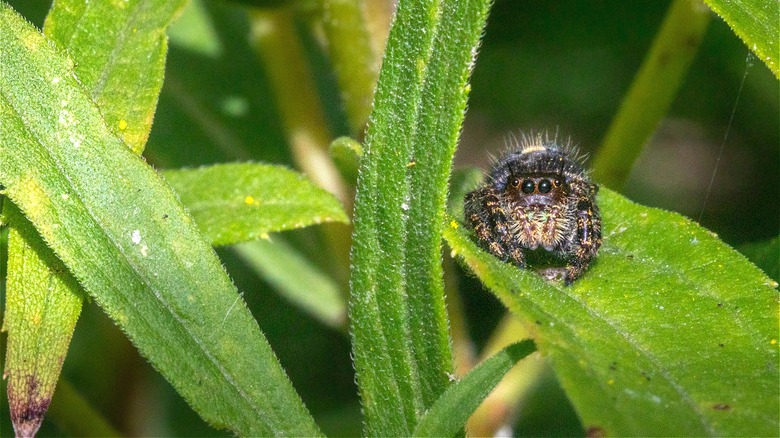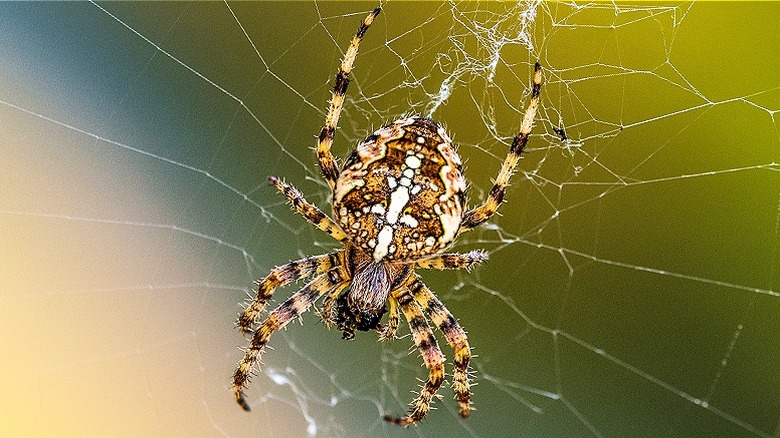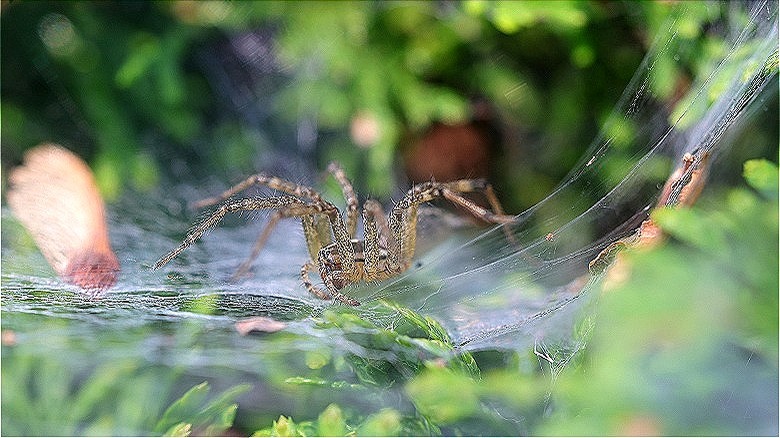Think Twice Before Trying To Get Rid Of Spiders In The Garden
Spiders, with their eight legs and often intimidating appearance, have long been the subject of fear and revulsion for many people. It's not uncommon to hear stories of folks reaching for the nearest shoe, broom, or newspaper when they encounter one in their garden or home. However, we're here to encourage you to think twice before squashing those garden spiders or shooing them away. These arachnids can be incredibly beneficial to your garden and the ecosystem as a whole, and it's important to know that there are harmless and helpful garden spider species.
The fear of spiders is quite common, and it's not entirely unfounded. Some spider species are venomous, and their bites can be painful or even dangerous to humans and pets. However, it's crucial to recognize that most garden spiders aren't harmful to humans and that spiders, in general, prefer to avoid human contact. Besides, beneficial garden spiders play an essential role in maintaining the balance of your garden space.
The benefits of garden spiders
Garden spiders, like orb-weaver spiders, jumping spiders, and wolf spiders, are some of the eight-legged helpers in your garden. Having these beneficial spiders comes with a host of benefits, including natural pest control. Garden spiders are voracious predators, feasting on a wide range of insects, including flies, mosquitoes, and even some garden pests like aphids, caterpillars, and beetles. By keeping the populations of other insects (especially pests) in check, spiders help maintain a healthy garden ecosystem.
Spiders also create intricate webs to catch prey, which can add a unique and beautiful aesthetic to your home's garden. These webs also serve as traps for pests, reducing the need for chemical pesticides. Also, encouraging a diverse range of garden spiders can contribute to the overall biodiversity of your green space.
For example, the delicate orb-weaver spiders, with their stunning, symmetrical webs, excel at catching flying insects like moths, mosquitoes, and flies. Jumping spiders, meanwhile, prey on different insects, including wax worms, fruit flies, and green bottle flies. As for wolf spiders, they're ground-dwelling hunters, controlling pests at the soil level.
Welcoming spiders into your garden
Now that you know about the many advantages of having spiders in your garden, you may be wondering how to make your green haven a welcoming place for them. You can provide spiders with habitat by creating sheltered areas like leaf piles, mulch beds, or rock piles where they can find refuge during the day. Minimize the use of chemical pesticides, as these can harm not only pests but also good garden insects like spiders; opt for organic and natural pest control methods whenever possible.
Also, ensure plant diversity in your garden by cultivating a variety of plant species. Doing this will attract a diverse range of insects, which, in turn, will draw different spider species to your garden space. Also, avoid disturbing spider webs or nests when working in your garden. If you can, allow them to continue their natural pest control activities undisturbed.


